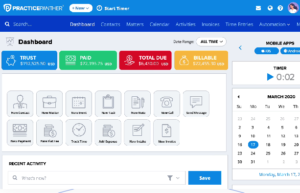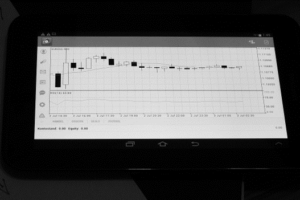 Education law is an area that deals with matters relating to educational institutions, students, and teachers. Resolving school disputes, such as those involving education students, disciplinary actions, employment issues, and civil rights violations, can be complex and time-consuming.
Education law is an area that deals with matters relating to educational institutions, students, and teachers. Resolving school disputes, such as those involving education students, disciplinary actions, employment issues, and civil rights violations, can be complex and time-consuming.
To effectively manage these disputes and ensure compliance with the laws and regulations education, law practitioners can benefit from using law firm practice management software specifically designed for their field of practice. This article explores the features and advantages of management software for education law, highlighting how it can streamline processes and enhance productivity when addressing school disputes.
Case Intake and Management
Legal management software for education law often offers case intake and management capabilities. These features enable practitioners to capture and organize information about school disputes, including details about the parties involved, relevant dates, documents, witnesses, and communication records.
By automating the case intake process through the software functionality, education law practitioners can save time while minimizing errors. The software typically provides forms that can be tailored to gather specific information pertinent to education law cases. This ensures consistency and accuracy in collecting data.
Managing Documents and Collaborating
When it comes to education law cases, there’s usually a lot of paperwork involved, such as student records, policies, correspondence, and legal research. To help education law professionals handle these documents efficiently, they can rely on management software.
This software offers document management features that allow practitioners to securely store and organize their documents. It makes it easy to find and collaborate on them by categorizing them. The advanced search capabilities also save time by retrieving information within the documents.
Education law practitioners often need to work with colleagues, clients, and experts. Legal management software provides a platform for collaboration where multiple users can access and annotate documents simultaneously. This real-time collaboration streamlines communication and ensures everyone involved in the case is on the same page.
Managing Tasks
In education law cases, meeting deadlines for court appearances is crucial. Missing these deadlines can result in consequences like case dismissal or missed opportunities for resolution. To help education law practitioners stay organized with their deadlines, legal management software offers calendar and task management features.
The integrated calendar in this software allows practitioners to have a view of deadlines, hearings, and meetings. Automated reminders and notifications make sure that important dates are never overlooked.
Task management features offer practitioners the ability to assign tasks to themselves or others, monitor progress, and establish deadlines. This functionality encourages responsibility and guarantees that all necessary actions are completed within the specified timeframes.
Time tracking and billing
Time tracking and billing play a vital role in the success of any legal practice. For education law practitioners, utilizing management software with customized time tracking and billing features proves advantageous.
By utilizing the software’s time-tracking capabilities, practitioners can accurately document hours and expenses associated with education law cases. This ensures invoicing while maintaining a record of work performed for each client.
The integration of billing features allows practitioners to generate invoices directly from the software, saving time and minimizing errors. Additionally, the software facilitates the management of retainer funds, trust accounting, and expenses—providing a solution for financial management.
Ethical considerations
Ethical considerations hold importance in education law practice. Legal management software can aid education law practitioners in upholding standards and complying with regulations.
The software often incorporates conflict-checking functionalities that enable practitioners to identify conflicts of interest before accepting cases. This safeguards integrity while ensuring client information remains confidential.
In addition, legal management software can be helpful in handling trust accounting and managing the funds of clients, ensuring adherence to trust accounting rules that apply. The software is capable of generating reports related to client ledgers, retainers, and outstanding balances making trust accounting simpler and providing a record.
In conclusion
Dealing with school disputes presents challenges for education law practitioners. To effectively tackle these challenges and meet ethical obligations, it is beneficial to utilize legal management software designed specifically for education law. This software offers a solution for education law practitioners by assisting with case intake and management organizing documents, facilitating collaboration, managing calendars and tasks efficiently, as well as tracking time and billing. By making use of the features and advantages provided by this software, education law practitioners can concentrate on achieving outcomes for their clients while reducing burdens.






